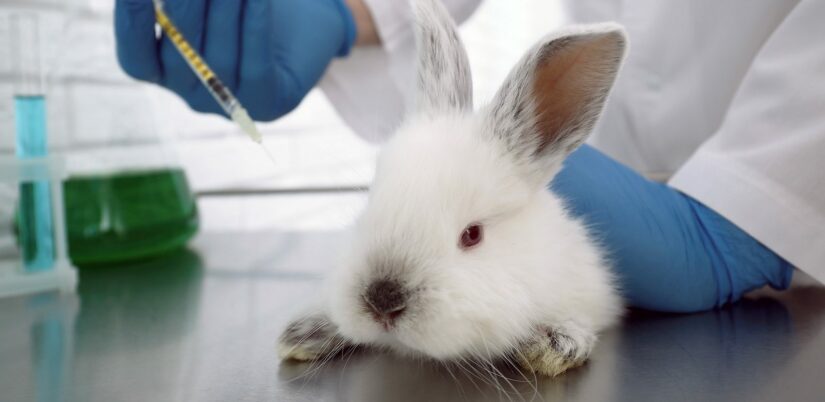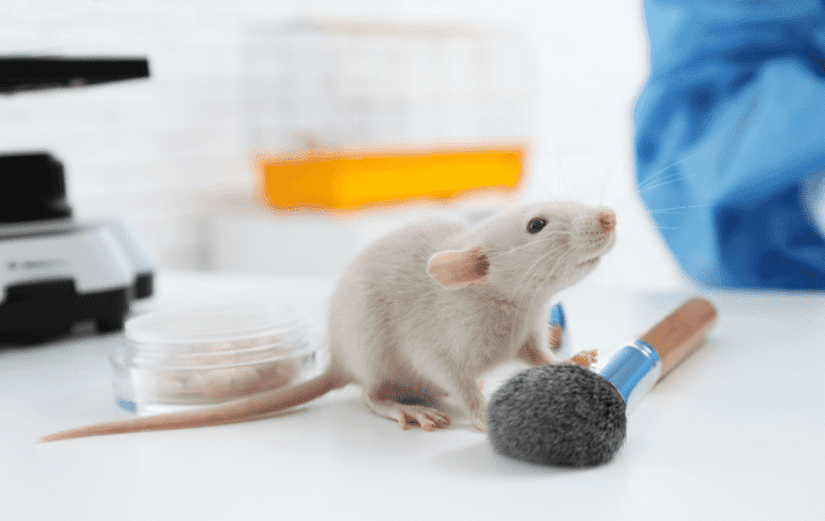
In back-to-back landmark victories for animal welfare in the spring of 2023, the Government of Canada has amended the Food and Drugs Act to ban cosmetic testing on animals and amended the Canadian Environmental Protection Act (CEPA) to start phasing out toxicity testing on animals.
The Food and Drugs Act amendment, which became law on June 22, 2023 prohibits:
-
- Testing cosmetics on animals;
- Selling cosmetics if the manufacturer, importer or seller relies on data derived from animal testing to demonstrate the safety of the cosmetic product (i.e., satisfy regulatory requirements in respect of cosmetics under the Food and Drugs Act and the Cosmetic Regulations);
- Making claims that a cosmetic has not been tested on animals unless evidence that validates that claim can be provided to the Minister upon request.
The Act allows the sale of cosmetics that rely on data derived from animal testing when the data satisfies any of the following four conditions:
-
- The animal testing was done prior to the coming-into-force of the prohibition on sale;
- The animal testing data was published by the Government of Canada on its website or in a scientific journal (e.g., referenced in a published Chemicals Management Plan assessment);
- The animal testing data was publicly available and the animal testing was not conducted by, or on behalf of, the manufacturer, importer or seller, nor was it sponsored by the manufacturer, importer or seller; or
- The animal testing was necessary to meet either a legislative requirement in Canada other than the cosmetic requirements under the Food and Drugs Act or requirements unrelated to cosmetics under another country’s legislation (e.g., pharmaceutical drugs), and the ingredient has a valid non-cosmetic use.

The Canadian Environment Protection Act amendment, which became law on June 13, 2023, sets out the goal of eliminating animal toxicity testing and establishes substantive requirements to achieve progress toward that goal, including:
-
- Requirements to only use alternatives to animal-based methods for testing and strategies for replacing, reducing and refining the use of vertebrate animals;
- A detailed roadmap for promoting and adopting alternatives to animal-based testing methods, with accountability measures, such as requirements to publish, consult, regularly review and report on the plan to Parliament; and,
- A duty to encourage and promote the development and timely uptake of alternatives to animal-based testing methods.
“Toxicity testing is among the most harmful and painful uses of animals in scientific research, and shifting to non-animal alternatives will save hundreds of thousands of animals each year from severe pain, extreme distress and even death”, says Dr. Sara Dubois, the BC SPCA’s Chief Scientific Officer. “There are an increasing number of non-animal testing alternatives that are more ethical, more predictive and relevant to human outcomes, more efficient and more cost-effective than animal tests”.
The Canadian Centre for Alternatives to Animal Methods (CCAAM) at the University of Windsor was founded in 2017 with the goal to develop, validate and promote non-animal, human biology-based platforms in biomedical research, education and chemical safety testing. Unfortunately, CCAAM closed in 2024 due to lack of funding.
The BC SPCA has a long-standing position against the use of live animals and their tissues for the testing of inessential substances, such as cosmetics, household cleaning products, cigarettes and alcoholic beverages. The BC SPCA and its dedicated supporters, along with Humane Canada and other animal welfare organizations, businesses and individuals, lobbied the federal government for almost a decade to eliminate cruel and unnecessary animal testing.
Canada finally joined more than 40 other countries that have limited or banned cosmetic testing on animals, including every country in the European Union, Australia, Colombia, Ecuador, Guatemala, Iceland, India, Israel, Mexico, New Zealand, Norway, South Korea, Switzerland, Sri Lanka, Taiwan, Turkey, and the United Kingdom.

Advocacy Timeline:
June 2023 – The federal government adopted legislation to ban cosmetic testing and start to phase our toxicity testing on animals.
April 2023 – Almost 4,000 BC SPCA supporters pledged to be cruelty-free in support of the proposed amendments to the Food and Drugs Act and Canadian Environmental Protection Act (Bills C-47 and S-5, respectively).
September 2022 – The BC SPCA submitted feedback on the Canadian Council on Animal Care (CCAC) Principles for the Ethical Use of Animals in Science, communicating opposition to any procedure that causes pain, suffering, distress or lasting harm.
December 2021 – The BC SPCA applauded the Prime Minister’s Mandate Letter to the federal Minister of Health included a statement to “introduce legislation to end testing on animals”.
Fall/Winter 2021 – AnimalSense magazine included a story on The Humane Household: a guide to ensuring your go-to products aren’t tested on animals.
November 2019 – National polling commissioned by Cruelty Free International indicated that 88% of respondents support a federal law that would prohibit testing for cosmetics in Canada, 82% feel that Canada should take a global leadership role to help achieve a worldwide end to animal testing in cosmetics, and 84% believe corporate organizations should ensure that they do not test their products on animals.
September 2019 – Bill S-214 received First Reading in the House of Commons but was not adopted before the dissolution of the 42nd Parliament. This sparked a national conversation with tens of thousands of Canadians consistently asking the government to ban the cruel practice.
June 2018 – Bill S-214 was passed by the Senate after more than 6,000 people wrote to the Senate Committee.
May 2018 – More than 630,000 Canadians signed a petition demanding an end to cosmetics testing on animals.
October 2017 – The BC SPCA participated in a national campaign to ban cosmetic testing with Humane Canada and partners.
December 2015 – Bill S-214, An Act to amend the Food and Drugs Act (cruelty-free cosmetics), was introduced in the Senate. The BC SPCA asked supporters to write to their federal representatives and urge them to pass Bill S-214.
September 2015 – The BC SPCA published Position Statement on Animals Used in Testing.
